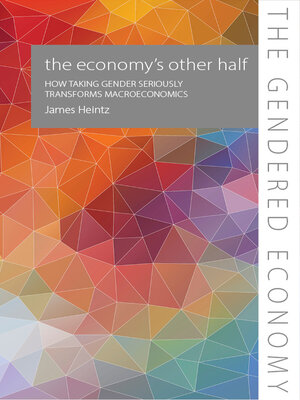The Economy's Other Half
ebook ∣ How Taking Gender Seriously Transforms Macroeconomics · The Gendered Economy
By James Heintz

Sign up to save your library
With an OverDrive account, you can save your favorite libraries for at-a-glance information about availability. Find out more about OverDrive accounts.
Find this title in Libby, the library reading app by OverDrive.



Search for a digital library with this title
Title found at these libraries:
| Loading... |
Choices made in macroeconomic policies – such as government spending, taxation, monetary policy and financial regulation – have distinct distributive consequences for women and men. They also shape the constraints within which efforts to advance gender equality must operate. The implications of gender dynamics for macroeconomics extends beyond consideration of distributive outcomes. The unpaid and non-market work that women perform – running a household, bringing up children – is unrecognized and uncounted in macroeconomic variables used to formulate policy. Yet the economic consequences of these unpaid activities are far-reaching: contributing to the well-being of society, affecting productive activities in the market economy and creating the foundation for the long-run sustainability of our economies.
It has long been assumed that economic growth and women's growing participation in the paid workforce would eventually take care of gender inequalities, and yet there is little evidence that faster growth will achieve this. In addition it ignores the valuable and quantifiable role that the unpaid work of women for their families contributes to the economy.
James Heintz tackles the shortcomings of macroeconomics in relation to gender dynamics and challenges the dominant methods and measurements, suggesting new ways of framing macroeconomic concepts. He concludes by considering implications for how this new way of thinking could transform policymaking in the future.






